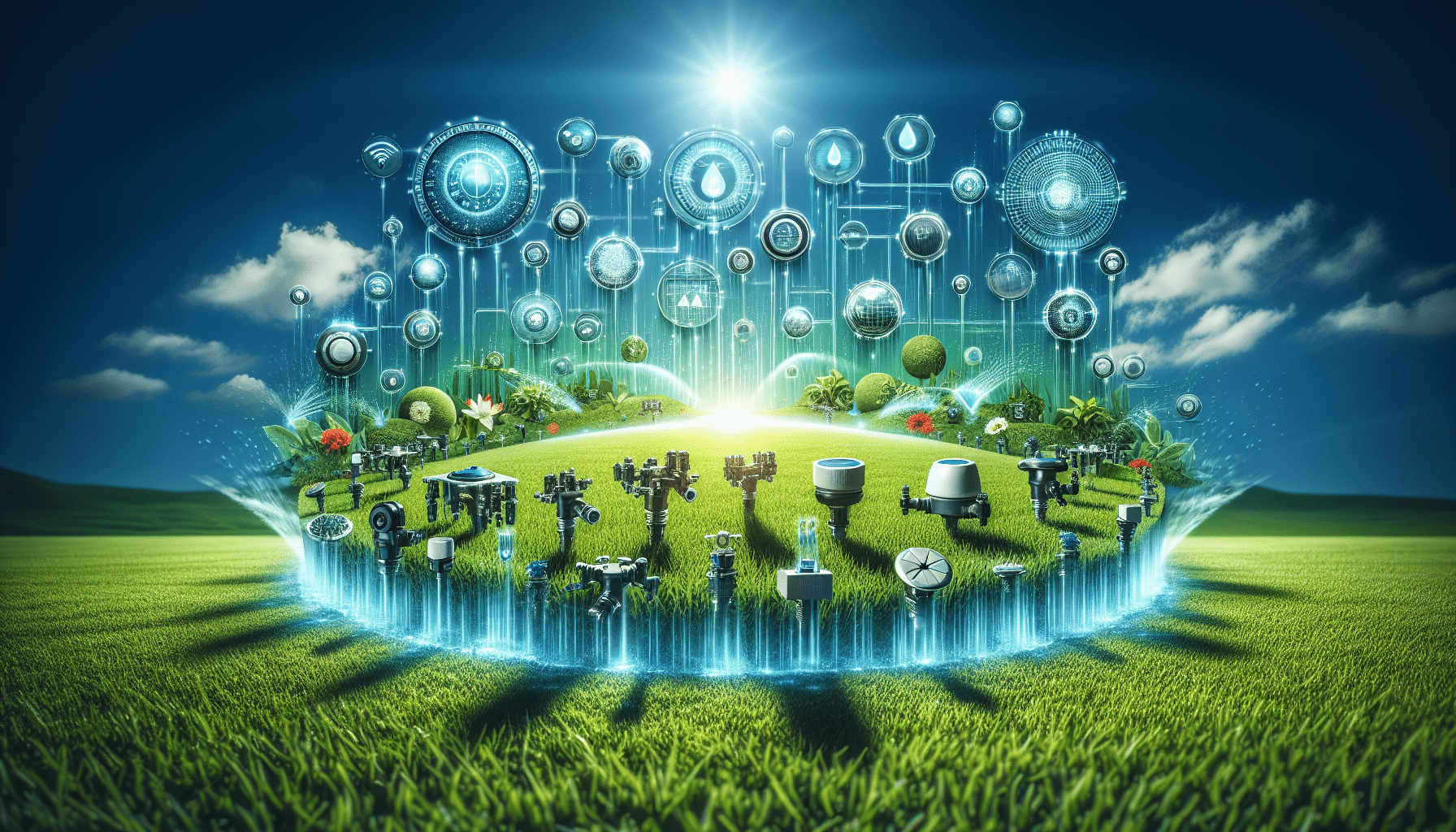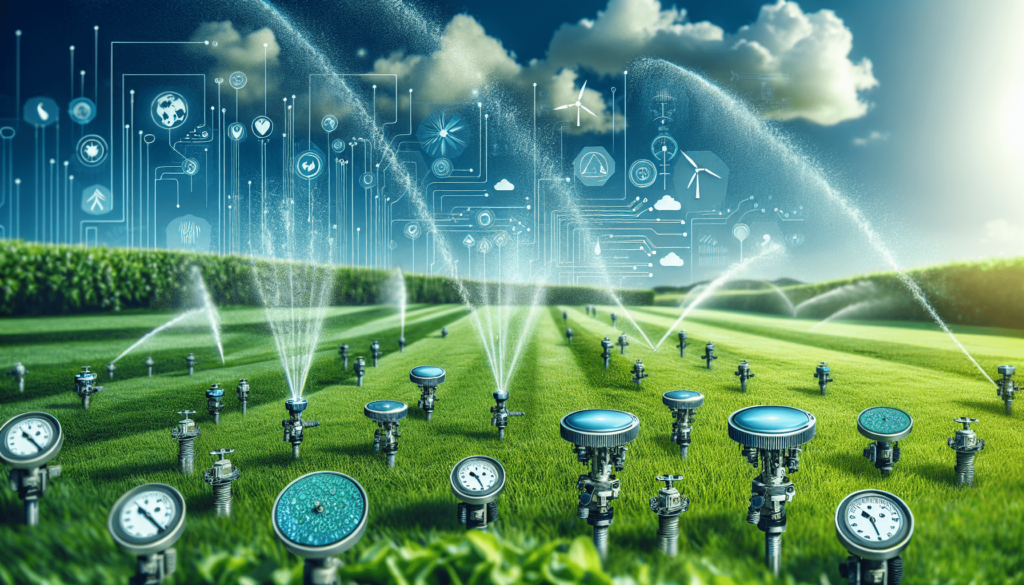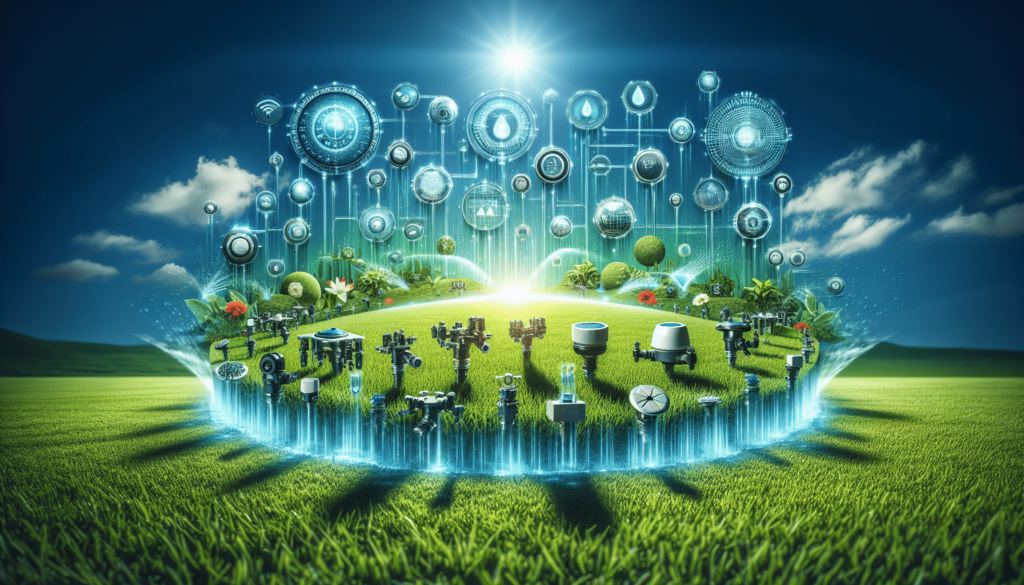
As you explore the fascinating realm of advancements in hydration technology, you’ll come across the marvels of smart irrigation systems. This intriguing exploration takes you on a journey through leading-edge technologies used to maximize the efficiency, effectiveness, and sustainability of water use in agriculture. You’ll discover how these innovative devices and digital solutions are revolutionizing the way we manage and understand the precious resource of water. Get ready to learn how science and technology have intersected to produce solutions to one of humanity’s oldest challenges: watering the fields.

Overview of Smart Irrigation Systems
Imagine being able to control and monitor the irrigation of your farm or garden from anywhere in the world. How about instead of losing crops to drought or overwatering, your crops thrive because each receives just the correct amount of water at just the right time? This isn’t an improbable dream; it’s the reality of smart irrigation systems.
Definition of Smart Irrigation Systems
Smart Irrigation Systems are highly intelligent and adaptable irrigation systems that self-monitor and adjust watering schedules based on the current and forecasted weather, soil, and plant conditions. This way, they provide an optimal amount of water to crops, plants, and lawns, reducing wastage and resource misuse.
Importance of Smart Irrigation in Agriculture
Agriculture consumes 70% of the world’s freshwater. As the global population continues to grow, the necessity to conserve water while increasing agricultural yield has become a critical issue. This is where smart irrigation comes to rescue. It not only reduces water waste but also enhances crop productivity by optimizing watering schedules and strategies.
Tradition versus Smart Irrigation
Traditional irrigation methods frequently result in the inefficient use of water, either due to overwatering or suboptimal watering times. On the other hand, smart irrigation, underpinned by technological advancements, offers a method to conserve water effectively. It’s a paradigm shift not just for farmer’s productivity but for global water conversation initiatives.
Technologies Driving Smart Irrigation
Smart irrigation is a highly complex technology that leverages innovations in a variety of fields. Here’s a peek into some of them.
Advancements in Sensor Technology
Sensors have been instrumental in evolving smart irrigation systems. From detecting soil moisture to monitoring weather conditions, sensors help gather key data that drive irrigation schedules.
Growth of Internet of Things (IoT)
The advent of IoT has transformed agriculture, enabling real-time monitoring and control of irrigation systems. It offers connected devices that communicate with each other, making irrigation systems smarter and more efficient.
Use of Artificial Intelligence and Machine Learning
Artificial Intelligence (AI) and Machine Learning (ML) algorithms analyze sensor data, learning patterns, and predicting optimal irrigation schedules, further maximizing crop yield and minimizing water use.
Role of Big Data and Analytics
Big data is essentially vast quantities of information. In the case of smart irrigation, data from sensors, weather forecasts, and crop information is collected, stored, and analyzed to make data-driven decisions.
Sensor Technology in Smart Irrigation
Sensors are the primary data sources in smart irrigation.
Soil Moisture Sensors
Soil moisture sensors, embedded in the ground, continuously monitor the water content of the soil. This information helps determine when and where irrigation is needed.
Weather Sensors
Weather sensors collect data about temperature, humidity, sunlight and more. This data is used to predict watering needs and to adjust irrigation in response to real-time weather conditions.
Understanding Sensor Data for Efficient Irrigation
Smart irrigation systems interpret sensor data to determine the precise watering needs of each part of a field or garden, ensuring an efficient and effective watering strategy.

Role of Internet of Things (IoT) in Smart Irrigation
The Internet of Thing’s contribution is invaluable in smart irrigation.
Remote Monitoring and Control of Irrigation Systems
IoT devices facilitate remote monitoring and control of irrigation systems. You can adjust watering schedules, check system status, and even turn irrigation systems on or off from anywhere in the world.
Real-Time Data Gathering
IoT-enabled sensors continuously gather and transmit data, providing the information needed to adjust irrigation in real-time.
Predictive Analytics for Irrigation Scheduling
IoT devices, combined with AI and ML, can analyze historical and real-time data to predict future watering needs, resulting in a further enhanced irrigation strategy.
Artificial Intelligence and Machine Learning in Smart Irrigation
AI and ML are game changers in smart irrigation.
Predictive Irrigation Models
AI and ML algorithms analyze data from various sources to create predictive irrigation models. These models forecast watering needs based on anticipated weather and soil conditions, leading to accurate and optimized irrigation.
Improved Crop Yield with AI
By providing optimal watering, AI and ML contribute significantly to improving crop yields, a boon for the agricultural industry.
Integrating AI with Other Technologies
When AI is integrated with technologies like IoT and Big Data, the resulting smart irrigation systems reach unprecedented levels of efficiency and productivity.
Big Data and Analytics in Smart Irrigation
Harnessing data to make more informed decisions is key in smart irrigation.
Data Collection and Analysis
Collecting data from various sources like sensors, weather forecasts, and crop information is integral in smart irrigation. Once collected, this data is consolidated and analyzed to gain valuable insights.
Data Driven Decision Making in Irrigation
Data drives decision making in smart irrigation – from determining watering schedules to predicting of future needs. It’s all about making informed, accurate decisions that optimize resource use.
The Impact of Big Data on Water Conservation
By effectively leveraging the wealth of data available, smart irrigation systems contribute significantly to water conservation. They ensure only necessary water is used for irrigation, reducing wastage.
Challenges in Implementing Smart Irrigation Technologies
While smart irrigation technology comes with numerous benefits, it also presents its own challenges.
Cost of Installation and Maintenance
The technological sophistication of smart irrigation systems can mean high installation and maintenance costs. However, keep in mind, the long-term benefits of water conservation and increased yield often outweigh these initial costs.
Technical Know-How and Training
Understanding and operating smart irrigation systems requires a certain degree of technical knowledge. Providing users with adequate training is, therefore, a key challenge when implementing smart irrigation.
Data Security and Privacy Concerns
Given the digital nature of these systems, data security and privacy concerns arise. From hacking to unauthorized data usage, comprehensive measures should be in place to address these potential risks.
Case Studies of Smart Irrigation Implementation
Across differing scales and requirements, the applicability of smart irrigation is vast.
Smart Irrigation in Large Scale Farming
Large scale farms can significantly benefit from smart irrigation. Accurate watering schedules can help maximize crop yield and reduce water consumption.
Urban Landscaping with Smart Irrigation
Urban landscapes, often characterized by diverse plant types and varying water requirements, are another area where smart irrigation can make an impact. It ensures optimal watering of each plant type, promoting their health and growth.
Greenhouse Cultivation and Smart Irrigation
Given the controlled environment of greenhouses, smart irrigation can further refine watering strategies, enhancing efficiency, and minimizing wastage.
Smart Irrigation in Drought Prone Areas
In drought-prone areas, the efficient use of water is not just desirable but essential. Smart irrigation can help better manage scarce water resources, ensuring essential crops get the water they need to thrive.
The Future of Smart Irrigation Systems
Elsewhere or hereabouts, the potential of smart irrigation systems is sky-high.
Emerging Technologies in Smart Irrigation
Emerging technologies like blockchain and edge computing are set to further revolutionize smart irrigation, offering heightened security and advanced computing capabilities.
Potential Impact on Global Water Conservation
As these systems become more prevalent, their potential impact on global water conservation is huge. They can reshape how we use this critical resource in many sectors, not just agriculture.
Prospects for Widespread Adoption
Given the benefits and the increasing global focus on sustainable and efficient resource use, the prospects for wider adoption of smart irrigation systems are very positive.
Concluding Thoughts on Smart Irrivation Technologies
Going over this once again, smart irrigation technologies combined with IoT, AI, and Big Data, offer a smarter and more efficient way to manage water resources. While it may present some challenges, the long-term benefits of smart irrigation far outweigh them. With the pace of technological advancements, the future of smart irrigation is bright, holding immense potential for sustainable agriculture.
